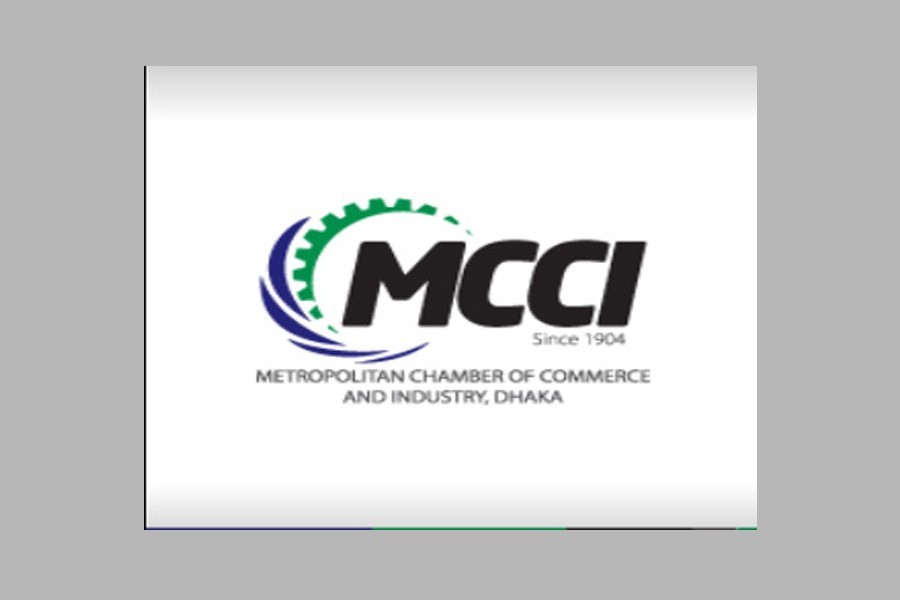

Bangladesh Purchasing Managers’ Index (PMI) for the month of August, jointly released by Metropolitan Chamber of Commerce and Industry (MCCI), Dhaka and Policy Exchange Bangladesh (PEB), has indicated improvement in the general economy.
While still in contraction mode with a reading below 50 indicating overall slowdown, the August 2024 PMI said the interim government has been working tirelessly to rebuild political stability and ensure normal business operations across sectors following the fall of the Awami League regime.
Previously in July, the index fell by 27 points to a record low of 36.9 due to widespread unrest and extreme measures taken by the previous Awami regime before their eventual fall, BSS reported citing a press release.
The PMI is a pioneering initiative that aims to offer timely and accurate insights into the country's economic health to help businesses, investors and policymakers take informed decisions.
It was developed by MCCI and Policy Exchange, with support from the UK government and technical support from the Singapore Institute of Purchasing & Materials Management (SIPMM).
Bangladesh's overall PMI score in August saw an increase of 6.6 points from July to reach 43.5.
PMI is a forward-looking economic indicator that helps identify the turning points in the business cycle and provides an early indication of where the economy is headed.
Encompassing crucial sectors such as agriculture, construction, manufacturing, and services, the PMI summarises whether markets are expanding, staying the same, or contracting through regular surveys of senior executives in the private sector.
According to PMI, an index above 50 signals expansion while a figure below 50 suggests contraction relative to the previous month.
Hasnat Alam, Economist and Senior Manager of Policy Exchange, delivered a keynote highlighting the methodology used in compiling the index every month and elaborated on the key findings of August PMI, shedding light on the broad pillar areas in each sector.
The manufacturing sector recorded an increase of 13.6 points to reach 47.7 in August, indicating continued contraction but a slower rate with general improvements in the indexes of new orders, new exports, imports, supplier deliveries, factory output and order backlogs compared to the previous month.
Employment, input purchases, finished goods, and order backlog indices however, reverted to contraction.
The agriculture sector, after 6 months of continuous expansion before July, recorded 38.7 in August after improving by 3.3 points. New business, business activities, and employment indices saw a slower contraction, while the input cost index recorded slower expansion.
The construction sector recorded a contraction for the second month and at a faster rate, deteriorating by 5 points from July.
The sector posted a faster contraction in the indexes of new business and construction activity. The input cost and order backlog indices also remained on the expansion track, indicating a poor environment for construction activities. The sector score was 40 in August.
The PMI score for Service sector in August recorded 43.2, an improvement of 6.2 points from July. New business and business activities indices saw slower contraction compared to the previous month, while the employment index experienced rapid contraction.
The input cost index recorded slower expansion, but the order backlog index returned to expansion indicating difficulties to meet pent up orders from last previous month.
Although all sectors posted contraction readings in August for two months straight, there was slight improvement in manufacturing, agriculture and service sectors.
Companies are cautiously optimistic of the economic outlook as the future business index continues to record expansion readings for all key sectors of the economy, although at a slower rate for key sectors compared to the previous month.
MCCI Secretary-General and CEO, Farooq Ahmed, in his concluding remarks, mentioned while there were few weeks of stability after the revolution, but business operations were hampered by various incidents of unrest that led to the closure of many factories.
Recovering completely from the economic turmoil noticed in the month of July, however, would take strict restoration of law and order and political stability to keep factories running.


 For all latest news, follow The Financial Express Google News channel.
For all latest news, follow The Financial Express Google News channel.